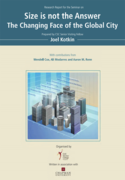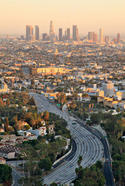Across the country—but particularly in the heavily industrialized Northeast and Midwest—smaller cities have confronted the grim realities of the unflattering “Rust Belt” moniker, and all of its associated characteristics, with varying degrees of success. With an aging work force, difficulty in retaining college graduates, and a frequently decaying building stock, the challenges they face are formidable. Cites from between 30,000 and 80,000 inhabitants typically boomed due to the exponential growth of a single industry, and, in many cases, the bulwark of that industry l read more »
Urban Issues
Transforming Kokomo: No Need to Move Mountains
- Login to post comments
In the Future We’ll All Be Renters: America’s Disappearing Middle Class
An Excerpt from Joel Kotkin’s Forthcoming book The New Class Conflict available for pre-order now from Telos Press and in bookstores September, 2014.
In ways not seen since the Gilded Age of the late nineteenth century, America is becoming a nation of increasingly sharply divided classes. Joel Kotkin’s The New Class Conflict breaks down these new divisions for the first time, focusing on the ascendency of two classes: the tech Oligarchy, based in Silicon Valley; and the Clerisy, which includes much of the nation’s policy, media, and academic elites.
The Proleterianization of the Middle Class
From early in its history, the United States rested on the notion of a large class of small proprietors and owners. “The small landholders,” Jefferson wrote to his fellow Virginian James Madison, “are the most precious part of a state.” To both Jefferson and Madison, both the widespread dispersion of property and limits on its concentration—“the possession of different degrees and kinds of property”—were necessary in a functioning republic. read more »
Why Do We Care About Transportation Mode Share?
The New York Times ran an op-ed piece that helpfully demonstrated the pitfalls of lifestyle arguments in favor of urbanism, namely that they are annoying to everyone but the people making the argument. read more »
UN Projects 2030 US Urban Area Populations
The United Nations periodically publishes World Urbanization Prospects. One of the highlights is both historic and projected detailed population information for individual cities around the world. The publication provides perhaps the best summary of US urban area population trends since 1950 and also projects their population through 2030. The UN provides data for the 135 urban areas with an estimated population of at least 300,000 residents in 2014. read more »
Size is not the Answer: The Changing Face of the Global City
This is an exerpt from a new report published by Civil Service College of Singapore, authored by Joel Kotkin with contributions from Wendell Cox, Ali Modarres, and Aaron M. Renn.
Download the full report.
As the world urbanises and more megacities are created, some smaller, focused urban regions are becoming truly critical global hubs, unlike most larger cities, which are simply tied to their national economies. In a new ranking of global cities, CSC Senior Visiting Fellow Joel Kotkin argues that the truly global city is one that is uniquely situated to navigate the global transition to an information-based economy since the influence of industries such as media, culture or technology are the ones that will determine economic power in future. Kotkin also examines the fundamental challenge faced by cities as they achieve global status: the need to balance two identities, a global and a local one. "The world beckons, and must be accommodated, but a city must be more than a fancy theme park, or a collection of elite headquarters and expensive residential towers", he asserts. read more »
Millennial Boomtowns: Where The Generation Is Clustering (It's Not Downtown)
Much has been written about the supposed preference of millennials to live in hip urban settings where cars are not necessary. Surveys of best cities for millennials invariably feature places like New York, San Francisco, Chicago and Boston, cities that often are also favorites of the authors. read more »
The Uniqueness of Detroit’s Housing Stock
Last week, as part of my series on planning reasons behind Detroit’s decline, part 2 of the nine-part series was about the city’s poor housing stock. I started to play with some numbers to see if there was any validity to my opinions about the city’s housing, and I found some very intriguing things. Detroit’s housing stock is definitely unique among its Midwestern and Rust Belt peer cities, and perhaps among cities nationwide. Let’s examine. read more »
Urban Cores, Core Cities and Principal Cities
Many American cities, described commonly as urban cores, are functionally more suburban and exurban, based on urban form, density, and travel behavior characteristics. Data from the 2010 census shows that 42.3 percent of the population of the historical core municipalities was functionally urban core (Figure 1). By comparison, 56.3 of the population lived in functional suburbs and another 1.3 percent in functionally exurban areas (generally outside the urban areas). read more »
Cleveland, LeBron, and the Evolution of Collective Shame
“Shame is fear of humiliation at one’s inferior status in the estimation of others.”—Lao Tzu.
Sitting with fellow Clevelanders at a since-demolished bar, July 7th, 2010, LeBron James, local boy, uttered the words that hurt: “I am taking my talents to South Beach”. It was a shot heard around the world, but felt sharply inside the Rust Belt city’s heart. read more »
Don't be so Dense About Housing
Southern California faces a crisis of confidence. A region that once imagined itself as a new model of urbanity – what the early 20th century minister and writer Dana Bartlett called “the better city” – is increasingly being told that, to succeed, it must abandon its old model and become something more akin to dense Eastern cities, or to Portland or San Francisco.
This has touched off a “density craze,” in which developers and regulators work overtime to create a future dramatically different from the region’s past. This kind of social engineering appeals to many pundits, planners and developers, but may scare the dickens out of many residents. read more »





















